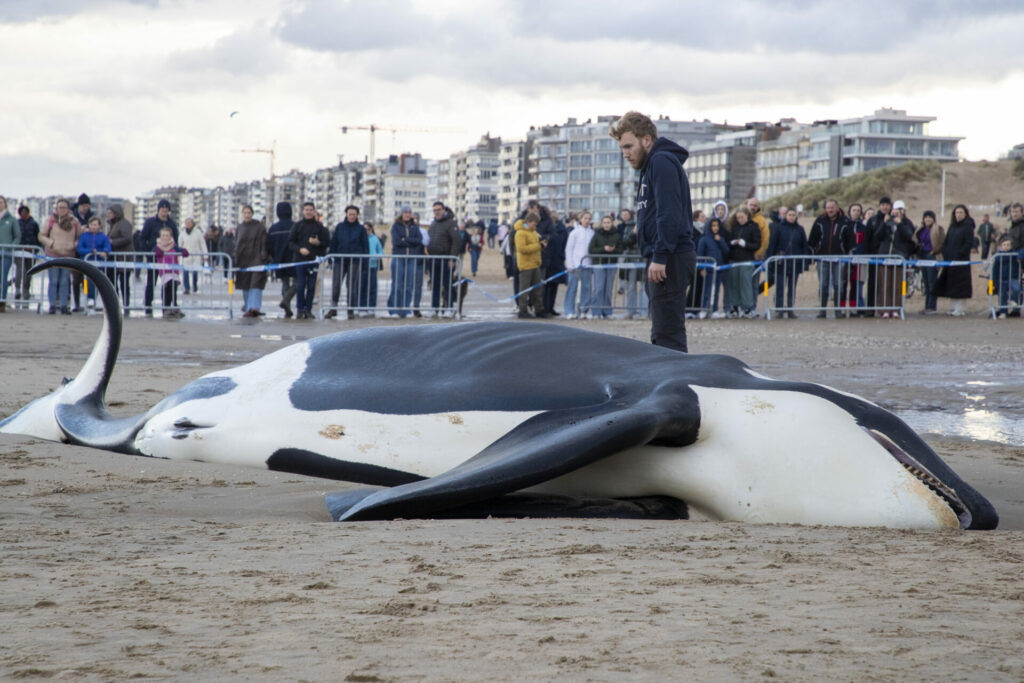The autopsy on the carcass of the washed-up orca found on the beach in De Panne has ended, with no clear cause of death having been established.
Initial results confirm suspicions that the animal was very weakened. "It is always interesting to know the cause of death," says Kelle Moreau of the Royal Belgian Institute of Natural Sciences (KBIN). "'With predators at the top of the food chain, the cause of death can be an indicator of the health of the whole ecosystem."
The orca washed up on De Panne beach on Sunday after being spotted earlier along the coastline. Shortly after being spotted, the animal died. It was believed to be clearly weakened even on the first sighting.
The orca was first spotted in northern France, near Wimereux, on 27 October. "The animal had clearly not eaten for a while, as its stomach and intestines were empty," Moreau said. "No fractures were detected, so we can assume that it did not collide with anything." The external autopsy also found no abnormality in the main organs.

Credit: Belga / Nicolas Maeterlinck
The researchers did find signs of problems with its lymphatic system, which could possibly indicate an infection. "That could explain the weakening, but it needs further investigation in the lab." Toxicological tests will also be done to check for chemical contamination. "In the sea, unfortunately, a lot of pollution is present, just think of heavy metals like mercury," Moreau says.
"That can accumulate in the food chain. A small fish will ingest minute amounts, but those toxins can accumulate in a top predator like an orca that eats huge amounts of fish daily. A weakened and hungry animal like the stranded specimen has to tap into its fat reserves, and that is exactly where the body stores toxins and heavy metals. Therefore, those substances re-enter the bloodstream and that can be the proverbial straw."
For now, the origin of the animal is also still guesswork, although the researchers do have a suspicion. "Near the Belgian coast, you have the Spanish, Scottish and Norwegian orca populations. The northern orcas are more likely to feed on seals and are slightly larger, the southern group mainly eats fish and is a bit smaller. Based on the teeth and size of the washed-up orca, we rather think it is a southern animal. But we are still waiting for confirmation from the researchers there."

